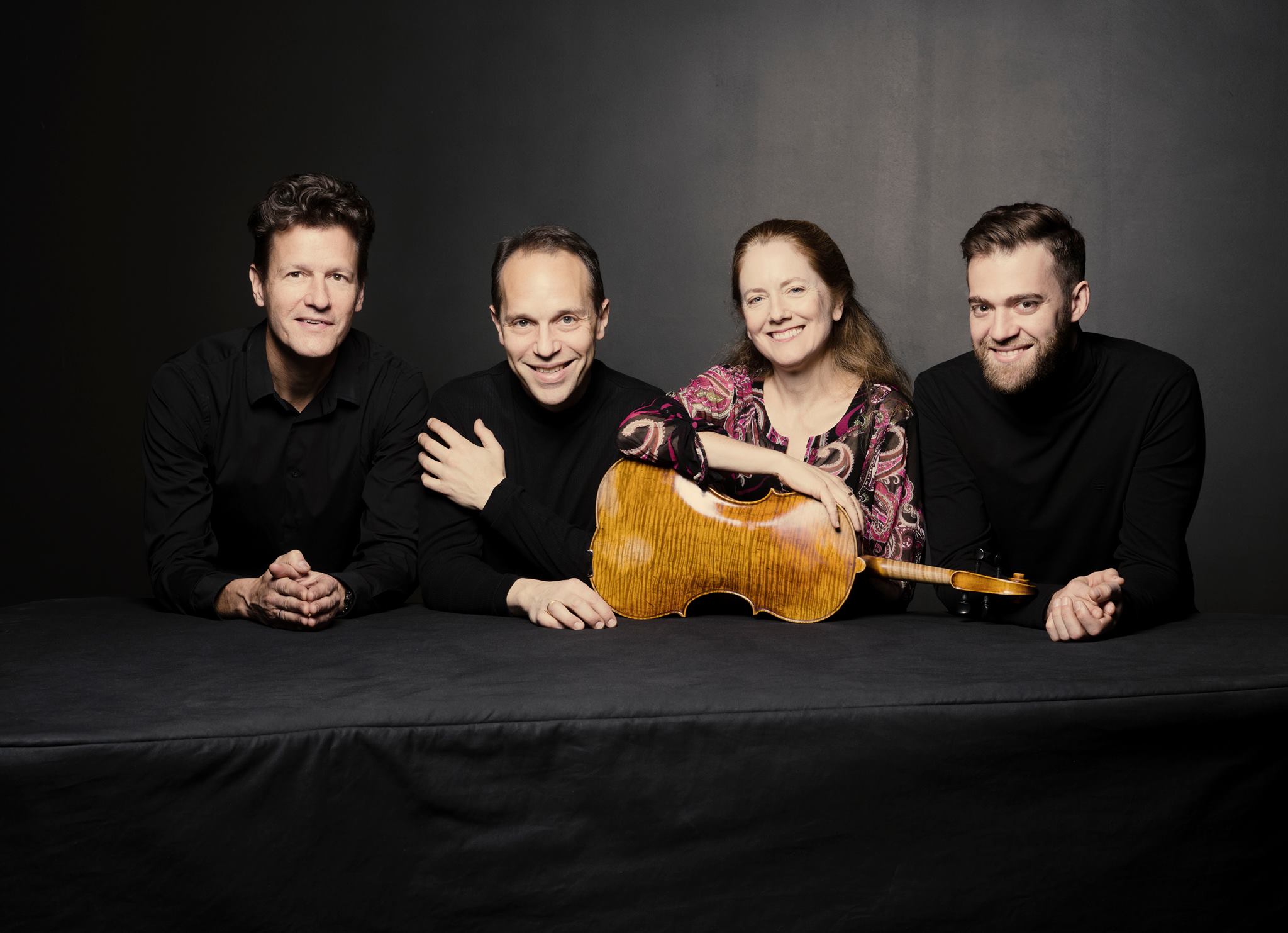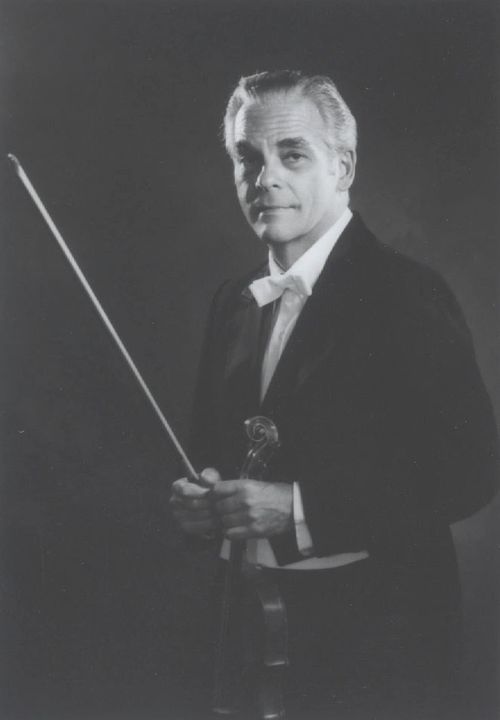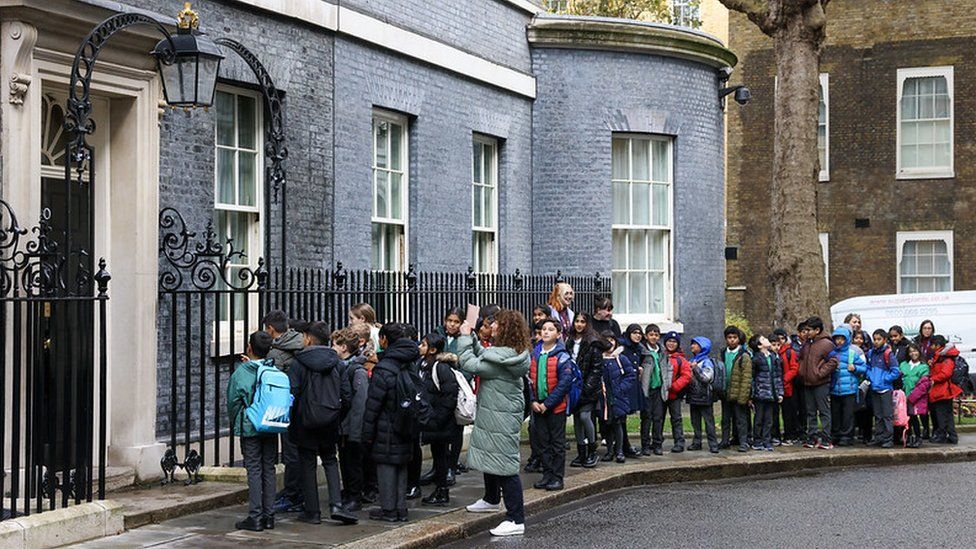BBC: The classical music cuts have begun
NewsThe BBC this morning abolished one of its performing groups and demanded redundancies in others. This is the first such cull in a generation and it is just the beginning (as the heavily spun press release indicates between the lines).
The BBC Singers is the UK’s only fulltime salaried vocal group. No more. One-fifth of orchestral players will lose their jobs, by voluntary redundancy or other means.
Here’s the BBC spin:
New Strategy for Classical Music Prioritises Quality, Agility and Impact
Following last year’s classical review looking at the sector and the BBC’s role within it, the BBC today sets out a new strategy to strengthen its public purpose for classical music, delivering the best music to a wider audience, with a significant new investment in music education. The new strategy ensures every pound of licence fee funding works harder for the sector and for our audiences now, and in the future.
At the heart of the plan, the BBC commits to:
Creating agile ensembles that can work flexibly and creatively, working with more musicians and broadcasting from more venues – up to 50 – in different parts of the country, and reducing salaried orchestral posts across the BBC English Orchestras by around 20%
Reinforcing the distinctiveness of the BBC’s five unique orchestras, artistically, educationally and geographically serving their own audiences whilst fulfilling their collective role in providing the widest range of content across Radio 3 and BBC platforms
Doubling funding for music education and launching new training initiatives, providing more opportunities for people to engage with classical music, building audiences and creating extraordinary experiences.
Creating a single digital home for our orchestras, giving audiences access to the full range of our high-quality orchestral content, including new and archive performances, educational content and concert listings.
Taking the difficult decision to close the BBC Singers in order to invest more widely in the future of choral singing across the UK, working with a wide range of choral groups alongside launching a major choral development programme for new talent.
The BBC, as the biggest commissioner of music and one of the biggest employers of musicians in the country, has a vital part to play in the British cultural landscape and a duty to future proof what we deliver for the public. At a time of very real financial challenges across the orchestral and choral sectors, the BBC has reviewed how it invests in resources to deliver the best possible value for the licence fee payer. A key part of this is the BBC’s role in music education, and how we must invest more and create stronger partnerships to develop future talent.
The strategy invests more widely in the sector across the UK, whilst delivering savings that ensure we deliver high quality orchestral and choral music within a sustainable financial model. Even were there no financial challenges, we believe these steps are the right ones to take to help ensure the future success of the sector.
Charlotte Moore, the BBC’s Chief Content Officer, says:
“This is the first major review of classical music at the BBC in a generation. This new strategy is bold, ambitious, and good for the sector and for audiences who love classical music. That doesn’t mean that we haven’t had to make some difficult decisions, but equally they are the right ones for the future. Great classical music should be available and accessible to everyone, and we’re confident these measures will ensure more people will engage with music, have better access to it, and that we’ll be able to play a greater role in developing and nurturing the musicians and music lovers of tomorrow.”
Future-proofing BBC Ensembles
Building on the founding principles of the BBC orchestras as flexible and adaptable, we are creating agile ensembles that can work creatively, bringing in more musicians when needed and broadcasting from more venues in different parts of the country. This flexibility will enable our orchestras to perform the full range of repertoire, from intimate smaller scale works to the largest full-scale symphonic and choral pieces. A voluntary redundancy programme will open across salaried posts in the English Orchestras (BBC Symphony Orchestra, BBC Concert Orchestra and BBC Philharmonic Orchestra), aiming to reduce salaried orchestral posts across the BBC orchestras by around 20%.
Across the nations, BBC National Orchestra of Wales, BBC National Chorus of Wales, BBC Scottish Symphony Orchestra and The Ulster Orchestra will continue to play an essential broadcast role for the BBC, delivering distinctive orchestral performances and education programmes. As the changes are made across the English groups, the Head of Orchestras and Choirs will work with the Orchestra Directors of the Nations’ Orchestras to consider whether there could be any lessons for the Nations’ Orchestras.
With increased agility and flexibility, all BBC Orchestras will bring the best of classical music to a wider range of venues, performing and broadcasting from up to 50 new performance venues from the 2024/25 season.
Investing in music education
Working closely with external and internal BBC partners, including BBC Radio 3, Autumn 2023 will see the launch of a major nationwide music education offer which aims to reach every school in the UK through online, broadcast and live performance. The BBC is doubling its current investment in music education to kickstart the process and further details of the offer will be announced later this year.
Investing in a new digital home
The BBC will create a new single digital home for its orchestras, giving audiences access to the full range of high-quality orchestral content. This will include new and archive performances, educational content and concert listings.
Investing in choral singing across the UK
Choirs, from amateur to professional, form an integral part of the UK’s thriving music scene. It is essential that the BBC invests in more broadcast opportunities from a greater range of high-quality ensembles, and therefore the BBC has made the difficult decision to close the BBC Singers (20 posts) and invest resources in a wider pool of choral groups from across the UK. Enhancing and enabling emerging and diverse choirs is also key to engaging a wider and a future audience, so the BBC will establish a new nationwide choral development programme.
Championing the distinctive five BBC Orchestras
The BBC Orchestras hold a special place in the cultural landscape of the UK, with many concerts across the country featuring the world’s best soloists and conductors. They are at the heart of the world’s biggest classical music festival, the BBC Proms, and they deliver a range of music and repertoire at the highest possible level. The BBC will build on the success of its orchestras, increasing agility and flexibility through its new working model which puts access and visibility at the fore.
East Bank will be the new home for the BBC Symphony Orchestra and BBC Symphony Chorus from 2025, with tailored flexible studios being built on the site of the Queen Elizabeth Olympic Park as part of new cultural quarter in East London, alongside the V&A, UCL, London College of Fashion and Sadler’s Wells. The BBC Concert Orchestra’s administrative base will be at East Bank, and discussions are ongoing to find a home for them outside the M25. The BBC Philharmonic continues to have its home in Salford, alongside a raft of Radio 3 programmes which will move there in 2024/25, further strengthening a new hub of excellence for classical music rooted in the North. We are committed as ever to perform and broadcast from all corners of the UK.
As part of the delivery of these ambitious plans, Simon Webb, the BBC’s Head of Orchestras and Choirs, will convene a new Classical Advisory Group of industry leaders from across the classical music sector outside of the BBC. The group will advise on strategic decisions and sector-wide engagement, as the BBC orchestras fulfil their public service remit supporting a thriving classical music sector in the UK.






“Choirs, from amateur to professional, form an integral part of the UK’s thriving music scene. It is essential that the BBC invests in more broadcast opportunities from a greater range of high-quality ensembles, and therefore the BBC has made the difficult decision to close the BBC Singers (20 posts) and invest resources in a wider pool of choral groups from across the UK.”
Similar platitudes when the BBC Big Band was scrapped. The UK’s jazz musicians are still waiting for the promised investment in ‘broadcast opportunities.’ In fact, BBC Scotland have announced the axing of their dedicated jazz, classical and traditional music programmes.
Next press release: BBC singers replaced by the Chineke (sorry, I mean Chineke!) Choir, with a new salary for Chi-Chi Nwanoku (sorry, I mean Chi-Chi Nwanoku CBE), with “conductor” Anna Lapwood.
Nothing wrong with Anna Lapwood – she has attracted new audiences. Ok, so it’s a relatively niche market, the organ, but so what. Lapwood is good at what she does. Chi-chi meanwhile could start by handing back her Empire awards – or she could just shut up!
Pitiful and unfortunately possible.
The essential approach is to completely ignore all of the women who have gone before you because otherwise there would be a comparison and at that point the show is most definitely over.
I assume it’ll be a gospel choir?
That will at least save the BBC from having to pay a broadcasting fee to cover the (non-existent) Coronation contribution, since Chi-Chi (MBE) will doubtless refuse to conduct/play at the event, thus continuing her utterly hypocritical stance vis a vis her MBE.
I just love the spurious titles these all-powerful bureaucrats clothe themselves in. Charlotte Moore is the Content Officer. The what, please? A generation ago the BBC had no such position. But hey ho, these days we need managers to manage the managers, supervisors to supervise those poor unfortunate individuals who would otherwise be bereft of ideas or procedures they could follow. I wait patiently for a companion piece to complement John Tavener’s The Protecting Veil. We urgently need a composer of insight to give us The Protecting Hand, dedicated to all those invisible yet essential echelons of administrative power who can cheerfully cut, slash and burn and yet themselves remain entirely unaffected.
In my local newspaper [in Rochester, NY] there was recently an add for a job opening for a Receptionist/Manager of First Impressions.
I thought Charlotte Moore was a BBC HR hatchet woman? Has she migrated into content destruction?
That role was obviously (an invisible) part of the brief.
I think we can all read between the lines.
Gary Freer is quite correct; and what we read from this devastation is a load of utter spin and bollocks.
Devastating, unjustifiable, shocking and disgraceful!
Viewers of W1A will already be familiar with the BBC strategy of “putting what we do best front and centre and about identifying better ways of doing less of it more”
It used to be said that you couldn’t make it up but the BBC shows that they most certainly can. And at not inconsiderable cost to the licence payers who have no choice but to pay up and be grateful for the ‘less’ that is left. Still, the performance bonuses will be ‘strong’ so ‘that’s all good’
W1A was a series of clever-clever, snide in-jokes. Those of us who were dealing with the BBC organisation knew that from experience.
The BBC obviously still has a strong Spin Budget.
This probably minor compared to what happens in 2027 when the BBC user license fee is ended, right?
Whatever alternate funding scheme is devised after that will likely be trivial in amount.
The BBC Orchestras have had a very protected existence, especially during covid. Salaried. Sickness pay. Maternity benefits, an endless list paid by UK tax payers! Perhaps a sense of real life is needed to survive like the other London orchestras and freelance ensembles.
It would be interesting to know how many musicians Gary Lineker’s annual BBC salary of £1.35 million would pay for.
Giles you make a good point this is my calculation from my comment earlier on this thread.
“There is enough BS in the BBC’s press statement to manure an entire county! Here just one simple calculation which will not loose the BBC any viewers in fact they may gain some. Axe Gary Lineker – £1,355,000 keep the BBC Singers and still save over £500,000.”
Reads like the whole thing has been drafted by the two faced Simon Webb, who’s slithering up the greasy BBC pole at the expense of everyone else. He was orchestra manager in Birmingham and none of us could stand the man, totally duplicitous and untrustworthy always scheming with the finance director to cut salaries. Thank f*** we saw the back of him. Now he’s back at his old tricks, destroying musician’s livelihoods, screwing over the MU, all with a patronising smile plastered over his pink face. The Dolores Umbridge of music. Awful man.
The BBC Symphony is a fine ensemble – an integral part of the Last Night – cutting them by 20% on its own shows that they don’t have any understanding of the prestige these groups have. You can build new audiences without sacrificing quality – and if something lacks quality, why it should survive is even more in question.
It’s an integral part of the whole Proms season, with the First and Last Nights and into double-figures for the rest of the season.
More cuts? And I thought Conservative party MPs traditionally billed themselves as more ‘cultured’ than their plebeian Labour counterparts.
Shall we count the days before Anna Lapwood is announced as the new saviour of English choral music and by an amazing coincidence takes over the planning for these regional ensembles?
I can see it now …a competition for pieces lasting 90 seconds but no more, thanks, unless the cleaners can join in or there’s a light show.
‘Resources, delivery, strategic decisions, sector-wide engagement, flexibility, voluntary redundancy, future-proofing…’ We all know what this means, don’t we?
Not quite true. The UK also has VOCES8 as a (superb, class-leading) full-time professional vocal ensemble. But they are not the BBC Singers, who follow a different remit.
It makes little sense to axe the Singers, the only such group in the BBC, and the only such group in the UK, and keep five full symphony orchestras who not only largely duplicate each other’s content, but also duplicate that of other orchestras in their own cities. If the BBC was serious about saving money, or re-prioritisng it’s expenditure, it would axe a couple of orchestras for far greater financial gain with little loss in content, quality, flexibility, or impact.
We know that this will come of course, thanks to Tim Davie’s announcements previously, and Simon Webb’s job description as advertised. And we know that orchestral cuts are likely to fall disproportionately in England, since Webb’s remit doesn’t have any real control over the regions. But for now the Singers are an easy target: picking off an orchestra would have the whole of the Musicians Union and the UK’s orchestras up in arms in very visible protest, where the Singers are a small number of people without many visible supporters, and members of the Equity union who aren’t likely to care much about a few members on their periphery.
Axing “a couple” of orchestras would severely limit the opportunity for some audiences to hear live orchestral music – unless you mean both of the London based BBC orchestras??
Agile and flexible – please read as freelance, variable makeup, smaller, cheaper – the very opposite of conditions which contribute to a quality orchestra. Rather like the new Sensitivity Advisors (now being assigned the Ladybird Fairy Stories) = Censors. Why cannot they just be honest?
Back to Neandertal…
The BBC promises to double its spending on music education. Presumably, that is funded in part by canceling the BBC Singers and letting attrition remove 20% of the orchestral players (of course, hiring extras for works requiring larger forces will reduce the latter savings).
How large is the BBC’s current spending on music education?
Will doubling it have any significant impact on the future receptivity to classical music of present schoolchildren?
Will a review of the effectiveness of existing educational programs accompany the increased spending?
Some years ago I wrote to the Controller of Radio 3 and BBC 4 berating them for their poor classical music coverage. I pointed out many folk out in the sticks and over in Northern Ireland do not have ROH, Wigmore Hall, RFH, etc on their doorstep and travelling and staying in London is expensive. Why they cannot broadcast live concerts, operas etc streaming. Back came the excuse, diversity, cost, have to pay musicians etc. I pointed out BBC suits and presenters are vastly overpaid .
I have to make do with DVDs the BBC programming on BBC 4 is rubbish, Sky arts puts on a few things but is not as good as ORF and channels in Germany.
If they closed BBC3 which is a youth channel they might have enough to run one culture channel. Alas UK politicians would not know Bach from Buxtehude.
Closing down choirs seems all they seem to do. I see a Bill is passing though the alimentary canal of the Commons to privatise the BBC converting it into another privatised public utility like water! I cannot see that making it better.
It’s not only UK politicians who cannot distinguish between Bach and Buxtehude (perhaps after googling they might conclude the latter is merely a small town outside Hamburg). The BBC in its frantic efforts to get rid of pale, male and stale radio presenters of classical music believes that if it ticks all the boxes (female, young, strong regional accents) it will improve its profile as being credible, professional and competent. This doesn’t work, as in the case of Elizabeth Alker, who simply doesn’t have a clue. Not so long ago she was telling us all about this guy Charles Monk (a relation to Thelonious?) in Boston. She didn’t have a clue about his background, but who cares? The BBC can point to diversity and all the boxes it ticks. To hell with any pretence of competence.
To be fair, BBC Radio 3 does broadcast four concerts a day on weekdays and at least two on Saturdays and Sundays (not counting Choral Evensong).
I want to see them in the flesh too! I do not live near an Oxford college, or Westminster abbey or ROH etc
I had anticipated the axe falling on the BBC performing ensembles. The loss of the BBC Singers is disgraceful. Likewise, a 20% cut in posts in the Symphony, Philharmonic and Concert Orchestras will radically alter the nature of these ensembles. The BBC Symphony Orchestra and the BBC Philharmonic are each likely to lose around 20 players.
BBC funding is of critical importance in Northern Ireland and Wales where the Ulster Orchestra and the BBC NOW are effectively the only providers of orchestral music. Any cutbacks would be devastating.
It could be that we are headed for strike action by BBC musicians. Will the Proms have to be cancelled…?
So W1A was so near telling of things to come from the hapless BBC who we pay for through our licence fees. Simple: Stop paying your licence fee so the BBC cannot afford such cultural morons
Over 63 senior posts in the BBC earn £150,000 – £1,350,000 year. So lets get rid of musicians and singers on less than £40K
There is enough BS in the BBC’s press statement to manure an entire county! Here just one simple calculation which will not loose the BBC any viewers in fact they may gain some. Axe Gary Lineker – £1,355,000 keep the BBC Singers and still save over £500,000.
Notice how all the redundancies are in the English orchestras? The Beeb doesn’t have the bottle to take on Scotland, Wales and Northern Ireland!
Simon Webb’s new role as Head of BBC Orchestras and Choir (well, that last bit is about to change, but I doubt the 6-figure salary will be commensurately reduced) only has real control over the English ensembles.
The BBCSSO and BBCNOW are controlled and largely funded by the BBC Regions, and have only a dotted reporting line to Webb.
[NI isn’t comparable – Ulster Orchestra is its own organisation funded outwith the BBC, but with a regular annual income from the Beeb in return for a number of broadcasts. This allows the BBC to claim they have something in every devolved nation… but as a result the BBC have no means to insist on job changes in Ulster.]
Yet!
Maybe the BBC can hire Stuart Murphy to save the … Oh wait. !!!
There are some BBC statements missing from this article, surely.
Where are the assurances that ‘Inclusivity’ and Diversity’ are the major driving factors in these changes?
(Sarc)
It’s implied though:
“…invest resources in a wider pool of choral groups from across the UK. Enhancing and enabling emerging and diverse choirs is also key to engaging a wider and a future audience”
That’s the nearest the BBC ever comes to clarity.
Good lord, what a lot of words to say “divestment.” And with all the reiteration of the great forthcoming “agility” one expects to see the remaining musicians running through tunnels and leaping hurdles at the next Westminster dog show.
This absolutely must not be allowed to happen. As the UK’s national broadcaster, the BBC occupies a very special place in British life at all levels. One of the most important of these is the incalculable contribution that the broadcaster has made to our cultural lives. The support and nurturing that the BBC has provided to young artists, composers and creative commentators cannot be over-estimated and would certainly not be provided by a commercial provider. If money has to be saved, then take it away from some of the puerile “light entertainment” offerings that seem to have blighted our broadcasting in recent years (endless, repetitious “game” shows and so-called “reality” shows, and more cooks that you can shake a spatula at!). Leave these to the commercial and on-line providers if you will and allow the BBC to concentrate on worthwhile programming, including the arts. One thing is certain, once these things are removed from our lives, they will not be replaced. So, support the BBC orchestras and BBC Singers now, or lose them forever.
We do need professional ensembles to give schoolchildren the experience of well performed music – instead of thinking putting Music on the general curriculum and then giving them electronic keyboards or ukeleles will inspire them to be the audiences of tomorrow.
But, compared to The Sixteen, Tallis Scholars, Monteverdi Choir do you really think the warbling of the BBC Singers (good sight readers though they may be) merit especial championing?